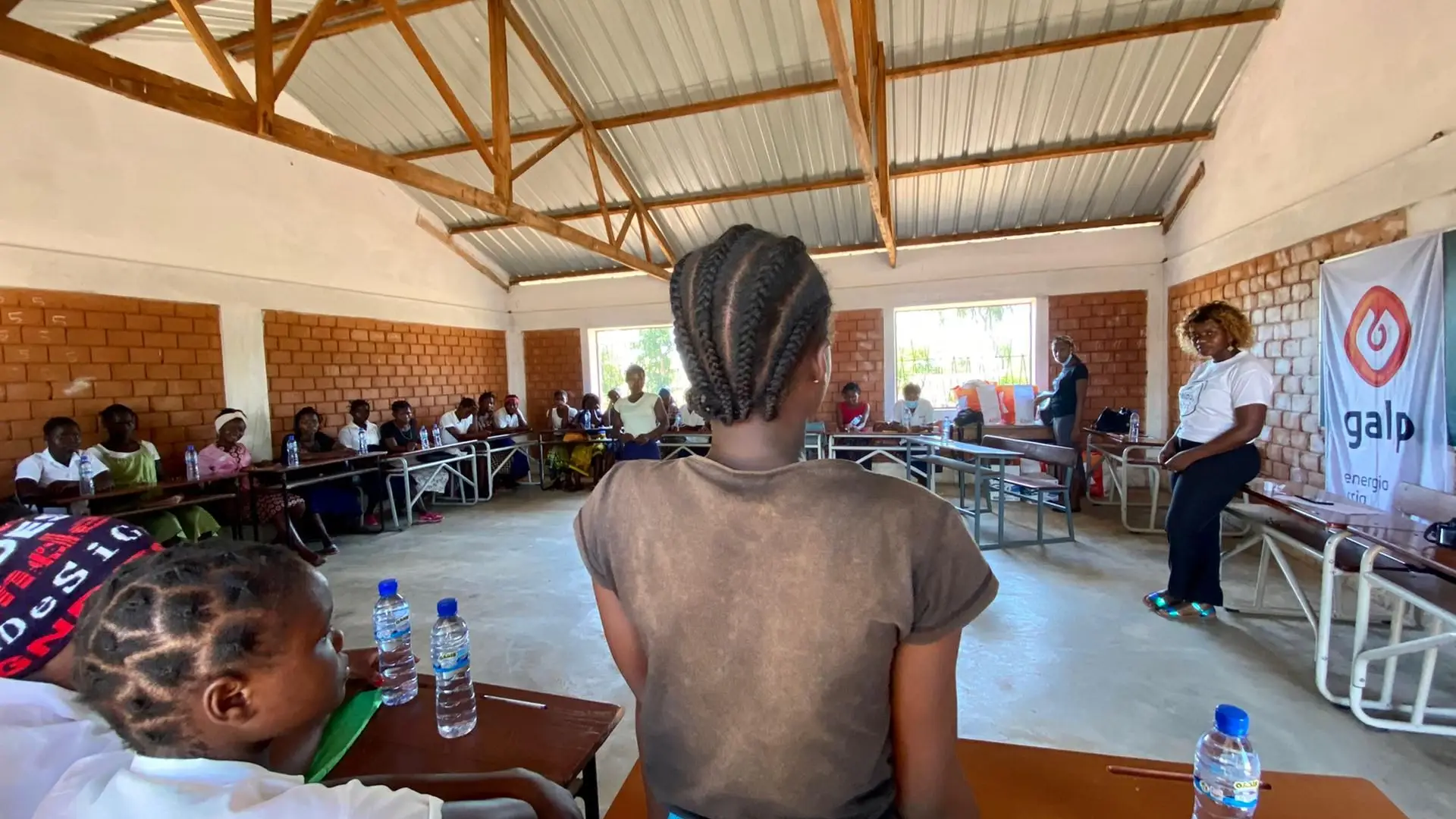Under the slogan “Sponsor one child and improve the lives of many others”, the Helpo association is disclosing a campaign to reinforce the Remote Child Sponsorship Programme. The initiative already has around 4,000 sponsors and supports the education of thousands of children in Mozambique and São Tomé and Principe. The programme provides ongoing assistance in these African countries to cover expenses including students´ enrollment fees, uniforms and school supplies, transport and accommodation costs, access to school meals and nutritional support, as well as helping to build and and equip libraries, new classrooms, rainwater collection systems and distribution points, among other actions, resulting in a positive impact on both the lives of these children and the entire school community around them.
The campaign arose in response to the growing number of children in need of sponsorship and, therefore, the need to ensure that Helpo's support continues to reach every single school community in the areas it operates in. The initiative was developed in partnership with the advertising agency Omnicom Creative Hub and inspired by major brands, including Galp.

Helpo's new sponsorship campaign was inspired by brands such as Galp
The aim, says Sofia Nobre, communications manager at Helpo, “was to associate ourselves with major well-known brands and to work in tandem with them to leave our mark on the lives of these children with the help of sponsors. This is why we are promoting adherence to the programme”.
TRANSFORMING LIVES FOR THE FUTURE
The flagship project Educating for the Future, an initiative created by the Galp Foundation in partnership with Helpo, contributes to this support of schools and has been promoting the development of education-related initiatives in Mozambique, São Tomé and Principe and Portugal, thereby changing people´s lives, since 2019.

Sofia Nobre, communications manager at Helpo, explains that the non-governmental development organisation (NGDO) wanted to “collaborate with brands aligned with our mission of helping those in vulnerable situations, working together to make a difference in the lives of entire communities”
Among the most noteworthy initiatives implemented in communities such as Natoa, in the province of Nampula, Mozambique, are the construction of classrooms and a school library, the provision of snacks for every student at the school twice a week, the delivery of academic material to both students and teachers, and bicycles for those living further away from the school, as well as promoting parental involvement by holding health education meetings to address key topics on nutrition and hygiene. “The electrification of the library using solar energy is also planned for 2024”, highlights the Programmes manager, Ondina Giga.
The commitment undertaken between the two entities also includes the construction of sanitary facilities and food and mobility support for students in Cabo Delgado, with a focus on internally displaced young people, in addition to other forms of collaboration such as co-financing projects; the donation of staple goods; and extraordinary support. Galp and its Foundation are currently co-financing two initiatives, a humanitarian project in the city of Pemba consisting of the construction and consolidation of peace through the creation of employment and self-employment among displaced young people in Cabo Delgado, and another entitled “Your Future”, which prepares students for higher education STEM (Science, Technology, Engineering and Mathematics) courses in Nampula, Cabo Delgado and Maputo.

According to Ondina Giga, programmes manager, the nigh-on five years of collaboration between Galp and Helpo has benefitted around 240,000 people in three countries and many more are expected to reap the rewards of the partnership by the end of 2024
The five-year old partnership is regarded as a great success. The initiatives implemented by Galp and Helpo have already benefitted 240,000 people, 130,000 of which through responses to humanitarian emergencies.
In Natoa alone, for example, the primary school involved in the initiative had no alternative to offer secondary school students, who had to travel several miles in order to attend classes. Today, it stands out for being a large-scale educational complex consisting of a primary school, a secondary school and a library and which, according to the school principal, “is a benchmark establishment”.
HOW TO JOIN THE CAUSE
The Helpo Association is an NGDO present in Portugal, Mozambique, São Tomé and Príncipe and Guinea-Bissau. It operates in several areas, in particular education, maternal-child health and nutrition, humanitarian emergencies, and community development and global citizenship. This scope, explains Sofia Nob, “has already enabled us to amass this year alone almost 147,000 regular beneficiaries”.






